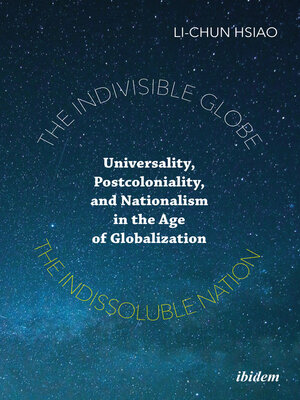The Indivisible Globe, the Indissoluble Nation
ebook ∣ Universality, Postcoloniality, and Nationalism in the Age of Globalization
By Li-Chun Hsiao

Sign up to save your library
With an OverDrive account, you can save your favorite libraries for at-a-glance information about availability. Find out more about OverDrive accounts.
Find this title in Libby, the library reading app by OverDrive.



Search for a digital library with this title
Title found at these libraries:
| Library Name | Distance |
|---|---|
| Loading... |
Li-Chun Hsiao attempts to rethink, under the rubric of globalization, several key notions in postcolonial theory and writings by revisiting what he conceives as "the primal scene of postcoloniality"—the Haitian Revolution. He unpacks and critiques the post-structuralist penchants and undercurrents of the postcolonial paradigm in First-World academia while not reinstating earlier Marxist stricture. Focusing on Edouard Glissant's, C. L. R. James's, and Derek Walcott's representations of Toussaint L'Ouverture and the Haitian Revolution, the textual analyses approach the issues of colonial mimicry, postcolonial nationalism, and postcoloniality in light of recent reconsiderations of the universal and the particular in critical theories, and psychoanalytic conceptions of trauma, identity, and jouissance. Hsiao argues that postcolonial intellectuals' characteristic celebration of the Particular, together with their nuanced denunciation of the postcolonial nation and the Revolution, doesn't really do away with the category of the Universal, nor twist free of the problematic of the logics of difference/equivalence that sustains the "living on" of the nation-state, despite an ever expanding globality; rather, such a postcolonial phenomenon is symptomatic of a disavowed traumatic event that mirrors and prefigures the predicament of the postcolonial experience while invoking its simulacra and further struggles centuries later.







